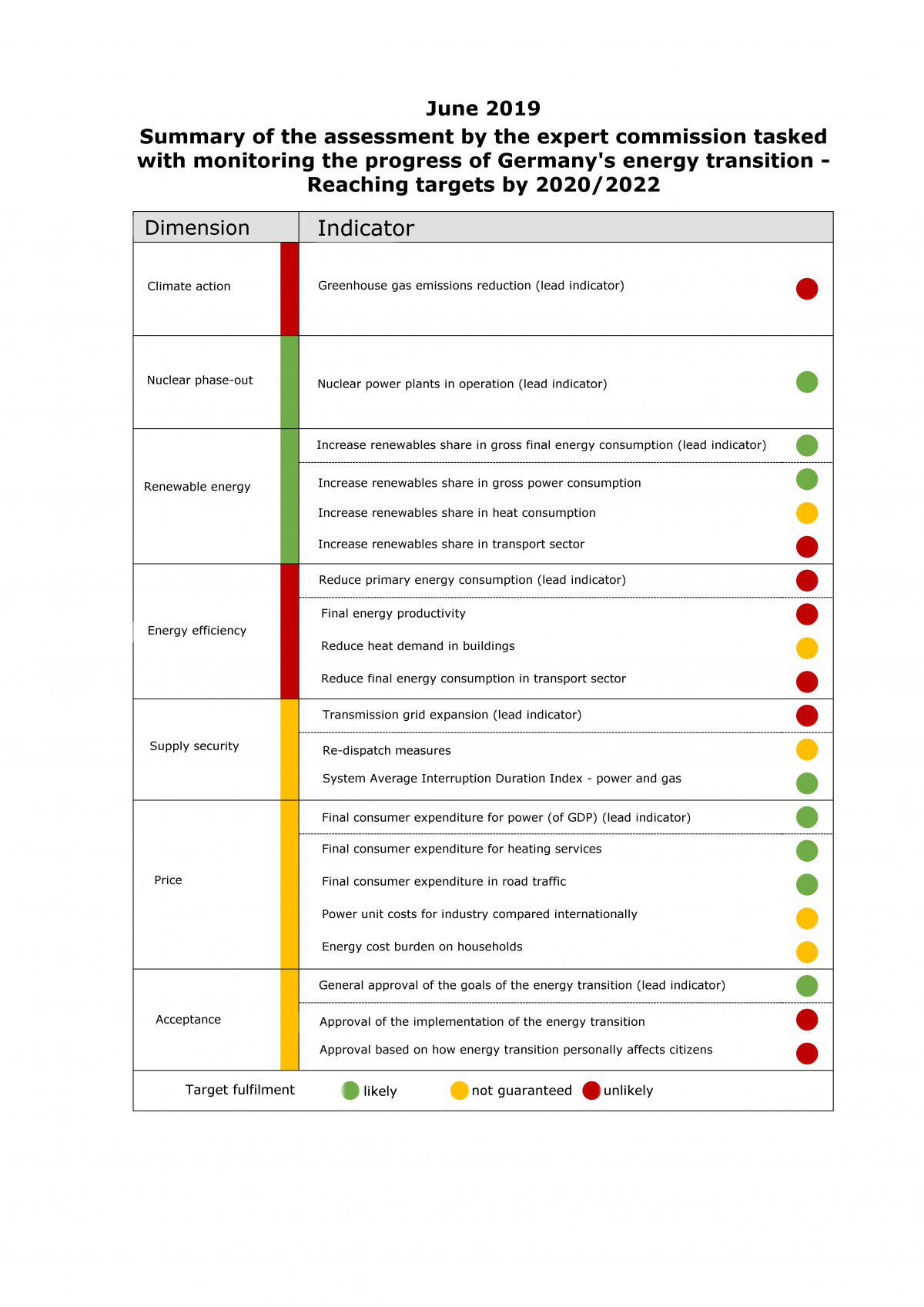Chances “better than ever” for CO₂ pricing in Germany – government advisor

Clean Energy Wire: What is the current state of Germany’s energy transition and how has the assessment changed since your last report in 2018?
Andreas Löschel: Well, it’s one year later, but we see that the developments in the individual sectors continue to be insufficient – especially in climate action and efficiency, but also in regards to renewable energies outside of the electricity sector, for example in heating and transport. These are sectors where we are set to miss our 2020 targets, and where we'll have big difficulties reaching 2030 goals. We also increasingly see a problem regarding acceptance. Citizens are less and less satisfied with the implementation of the energy transition.
Every three years, the German government releases an energy transition “progress report” instead of the annual monitoring report. It provides a broader context and more in-depth analysis with a more medium to long-term time horizon. Does this year’s report live up to that?
In its present form, the report does not live up to this. It’s a good and realistic stocktaking, but the progress report should name concrete future measures and initiatives, and this report does not do it in the way we would like to see it done. The government has said that 2019 is supposed to be the year of climate action and energy transition. This progress report is only a start.
In your expert opinion you have written that once the last nuclear power plant has been switched off in 2022, climate action will be the main focus of Energiewende monitoring. Chancellor Angela Merkel has recently set up a “climate cabinet” and promised key decisions by September. What would these be in your view?
It is of central importance to set the right framework for the energy transition. We need a comprehensive reform of energy taxes and levies. It turned out that it is in the long run not a good idea to finance the energy transition via the power price.
In Germany, we are currently having a heated discussion about CO₂ pricing. For us, it’s important to point out how this is key to the energy transition: We need a fundamental reform of electricity and energy taxes and levies, because while we're making good progress on renewable power – which has shown it can be a main supporting pillar of the energy transition – too little is happening in the other sectors. The idea is to make green power cheaper to use it in the other sectors. At the moment, many applications in transport or the buildings sector are held back because of high taxes and levies on electricity. So the comprehensive reform of these sectors is the next step in the Energiewende. And to finance the abolishment, we then need CO₂ pricing. It’s very appealing: Introducing a price on CO₂ would enable us to get rid of other instruments and make electricity cheaper.
The climate cabinet has said it will discuss this in July. You are in contact with the government, so – in your view – will Germany introduce CO₂ pricing in sectors not covered by the European Union Emissions Trading System (ETS)?
The chances now are better than ever. Economists have called for this for years and we should use the current window of opportunity.
Merkel has said that the government would decide whether to save CO₂ by sector or rather focus on more general CO₂ pricing. Does this have to be either/or?
No. It’s important to have a price on CO₂ that sets incentives in all sectors. The concrete design, however, has to be debated.
There is a discussion about whether to use a CO₂ tax or emissions trading. From an economic standpoint, both are market instruments for climate action which can be designed to have the same effect. One is not superior to the other per se. However, the time horizon is key here: how fast can one or the other be introduced? We believe that energy taxes can be adjusted pretty quickly, but expanding the ETS needs some approval at the European level – which will likely not happen for a while. As there is an urgent need to act, the government should start with a tax. However, this does not prevent the ETS expansion afterwards. Both do not contradict each other and can be introduced one after the other.
A while ago, the Australian government entertained the idea of “fixed price trading” where the government would have sold allowances for a fixed price, which has the same effect as a tax. And later the companies are allowed to us allowances from the emissions trading system. So both instruments are not as contradictory as often heard in the debate. It’s a question of design.
Environment minister Svenja Schulze has introduce a draft of a Climate Action Law in February. Is this draft a good way to bring Germany back on track to reach climate targets?
The idea to look at the individual sectors and discuss measures for decarbonisation is the right step. In my view, CO₂ pricing must play a key part in this, but we will need additional measures, for example incentivising energy-efficient building renovation, strengthening public transport or maybe introducing city tolls.
Germany has often been criticised for going it alone when it comes to the energy transition, with negative effects on neighbouring countries and insufficient outcome for global climate action. Could a German coal exit for example lead to more emissions in other countries, as more emissions allowances become available in the ETS?
It is certainly right to keep this in mind. When Germany effectively exits coal, we have to see whether we must take allowances out of the market. We also have to set up wide coalitions with European neighbours regarding CO₂ pricing.
Additionally, supply security is a key issue: According to studies, Germany can deal with a nuclear and coal exit, but this will have effects on the supply security in neighbouring countries. This shows that the energy transitions have to be coordinated.


